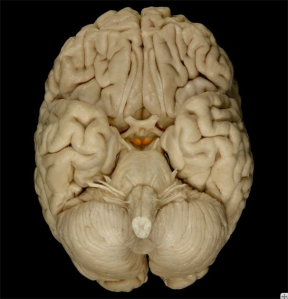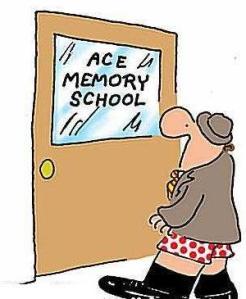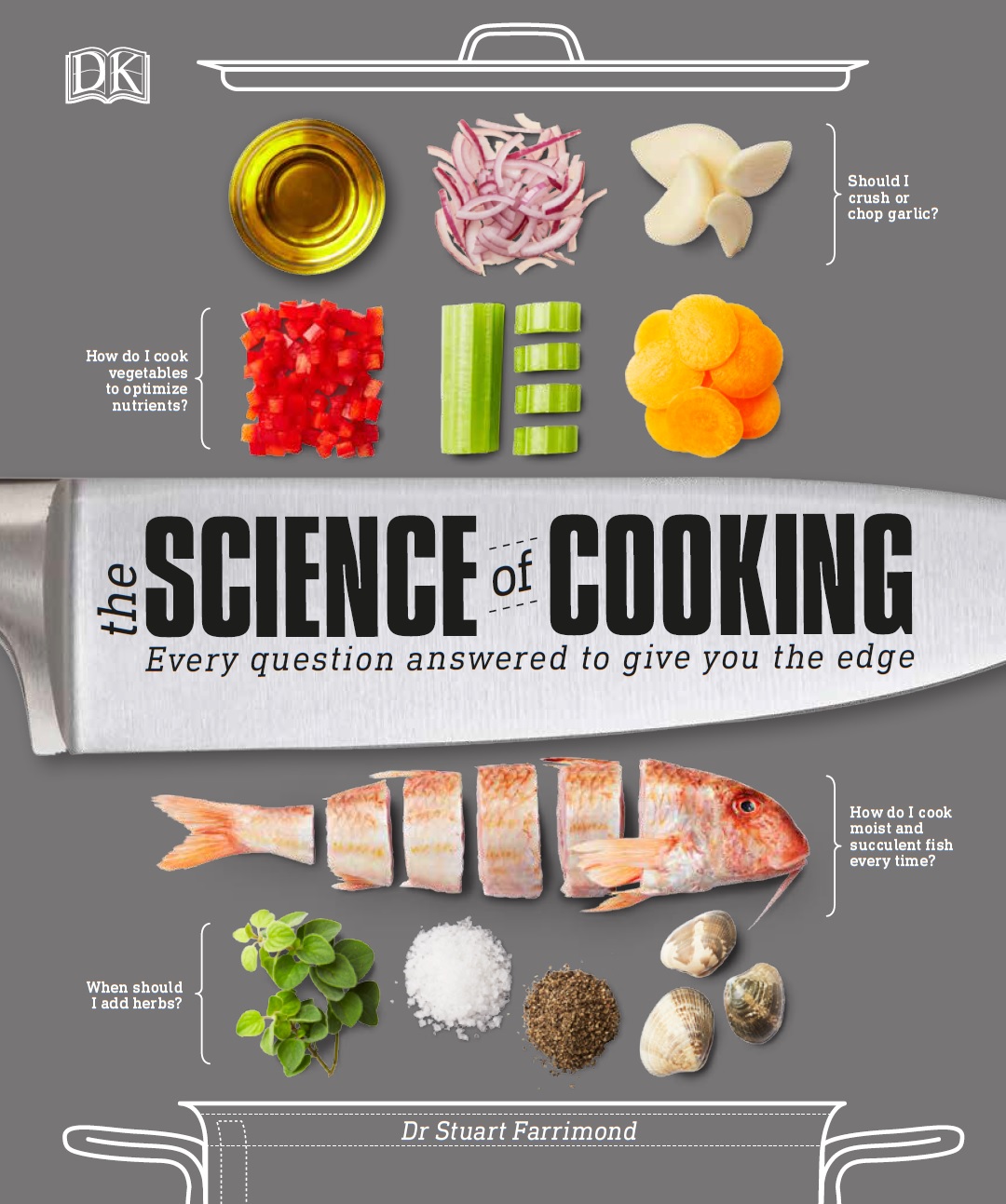How often have you forgotten something? When was the last time you walked into a room and forgot why you had gone in there?  Don’t worry - you’re not alone. This is the first of two blogs looking at memory.
Don’t worry - you’re not alone. This is the first of two blogs looking at memory.
Today’s blog looks at how our memory works and just how precious and fragile it is.
A Memorable Night Shift
I did my fair share of night shifts when I worked as a junior doctor. One memorable night I was working in a hospital emergency department and I was asked to see a patient that had just arrived; the nurses told me he was ‘odd’. Earlier that day the police had found him wandering the streets. When he unexpectedly collapse he had been brought into hospital.
 With stethoscope in hand, I went to see our new arrival. Pulling the curtains back, I saw a large muscular man with tattoos over his arms, wearing a black coat and dirty crumpled jeans. Although he didn’t have a smell particularly bad, my first impressions weren’t good. I introduced myself and asked him to explain what had happened.
With stethoscope in hand, I went to see our new arrival. Pulling the curtains back, I saw a large muscular man with tattoos over his arms, wearing a black coat and dirty crumpled jeans. Although he didn’t have a smell particularly bad, my first impressions weren’t good. I introduced myself and asked him to explain what had happened.
With a warm smile, he told me his name; he was polite had an air of sincerity about him. ‘Things might not be so bad’ I thought ‘He’s hardly the unpleasant and aggressive person I feared’. What possibly had the nurses meant when they called him ‘odd’? They must have confused him someone else…
He continued his story: he didn’t know why he had ended up in a hospital bed and certainly couldn’t remember collapsing. He was genuinely shocked to be in hospital and told me that he had never had any medical problems before. He gave a rather convoluted story about how he had been travelling from Preston to meet up with family. My geography wasn’t great, but it seemed plausible enough.
 I was perplexed: an otherwise friendly man with no reason to collapse finds himself in hospital… So I did the thing that all doctors do when they haven’t a clue: blood tests!
I was perplexed: an otherwise friendly man with no reason to collapse finds himself in hospital… So I did the thing that all doctors do when they haven’t a clue: blood tests!
“I’ll just organise some blood tests, to see if we can find what might be going on” I told him.
I stepped out from the cubicle, and returned a couple of minutes later: blood taking paraphernalia and a syringe in hand.
“Who are you? Have we met?” He asked when I returned.
“I’m the doctor, my name’s Stuart - I’ve just come back to take some blood tests, I was talking to you a minute ago”
 “Where am I? Where is this?” That same look of genuine surprise returned to his face.
“Where am I? Where is this?” That same look of genuine surprise returned to his face.
Suddenly the penny dropped: He had no short-term memory at all! After about two minutes he would forget everything that had just happened or that he had been told. This was going to turn out to be a long night…
The ‘Lost Mariner’
Neurologist Dr. Oliver Sacks wrote a book in 1985 called “The Man Who Mistook His Wife for a Hat” about ‘odd’ and interesting
patients he had met throughout his career. One person he describes is called ‘The Lost Mariner’: a man similar in mamy ways to my patient: he had no short-term memory. The ‘Lost Mariner’ was many years older than he thought he was, he was convinced the year was 1945 and he was a sailor in his twenties. He acted quite normally except that ‘modern’ inventions like colour TV’s baffled him. But because he had no short-term memory, he was unable to carry out any complicated task that required any continued concentration.
Both men had a condition called ‘Korsakoff’s Syndrome‘ and it’s not dissimilar to the severe memory loss that happens to some of us in old age (‘dementia‘). Both men had been alcoholics and had destroyed parts of their brain crucial for forming new memories: two tiny and insiginficant looking lumps of tissue at the bottom of the brain called ‘mammillary bodies‘.
Precious Memories
 Memories can be so precious to us: Remember that great meal with friends? Or that brilliant holiday you had a few years ago? Memories shape who we are and give us a sense of identity. Sometimes though we can be plagued with an old memory that we would much rather forget; perhaps something traumatic or a terrible mistake.
Memories can be so precious to us: Remember that great meal with friends? Or that brilliant holiday you had a few years ago? Memories shape who we are and give us a sense of identity. Sometimes though we can be plagued with an old memory that we would much rather forget; perhaps something traumatic or a terrible mistake.
Memories aren’t organised in the brain like how you might imagine - there is no hard-drive within your skull! Rather, memories are somehow spread out throughout all of our brain. The brain has different areas for different feelings and sensations: sights, sounds, emotions, sensations. If you look at a person’s brain in an MRI scanner and ask them to remember playing a game of tennis - the brain activity looks almost exactly the same as if the person is actually playing the game of tennis! Whenever you remember anything you have done, experienced or felt those parts of the brain that initially felt those thing ‘light up’ and you literally relive that experience in your mind.
All is not quite as it seems though, each time you relive your past, by remembering a cherised past experience that precious memory becomes vulnerable…
My First Date
 The first time I met my wife, we went on a trip into the Derbyshire Peak District. We paid a visit to the scenic town of Matlock Bath. Anyone who has been there will know that the town has a fair share of tacky gift shops. When we got there I had an idea for something fun to do on a first date. I thought it would be a good idea to play a game: Who can buy the other person the takiest gift. We had a price limit of £2 and we would access each other’s purchase by their humour value and lack of taste. It was fun - She got a grotesque drinks coaster and I got a packet of toy soldiers. Both were completely naff but I think I was the winner…
The first time I met my wife, we went on a trip into the Derbyshire Peak District. We paid a visit to the scenic town of Matlock Bath. Anyone who has been there will know that the town has a fair share of tacky gift shops. When we got there I had an idea for something fun to do on a first date. I thought it would be a good idea to play a game: Who can buy the other person the takiest gift. We had a price limit of £2 and we would access each other’s purchase by their humour value and lack of taste. It was fun - She got a grotesque drinks coaster and I got a packet of toy soldiers. Both were completely naff but I think I was the winner…
The thing is, I clearly remember suggesting this fun ‘game’ (I had such an extraordinary wit back then). But when we recount the story she insists that it was her idea… one of us must be mistaken.
Memory: Manipulated
 A True Story: a professor is teaching a class in a university. Suddenly a man rushes in and very quickly steals something from the professor then runs out again; the students are shocked. The professor asks the students: “Did you all just see that man with the curly hair who just ran in?” All the students agreed unanimously: a man with curly hair had indeed just run into the room and stolen something from the professor…
A True Story: a professor is teaching a class in a university. Suddenly a man rushes in and very quickly steals something from the professor then runs out again; the students are shocked. The professor asks the students: “Did you all just see that man with the curly hair who just ran in?” All the students agreed unanimously: a man with curly hair had indeed just run into the room and stolen something from the professor…
The event was staged to make a point. The man was not really a thief but an actor. All the students were asked and they all agreed in their description of him. But the actor had straight hair! The professor had told the students he had curly hair and this fact seemed to have been implanted into their memories. Their memories had been manipulated and our memories are just as vulnerable to this.
 This kind of memory manipulation can happen in intense police interrogation or if someone is asked to recount an event many many times. Each time we recall an event, it is vulnerable to be changed: perhaps subtly or perhaps more dramatically. Here comes the really sinister bit: similar techniques can be used to make entirely new memories…
This kind of memory manipulation can happen in intense police interrogation or if someone is asked to recount an event many many times. Each time we recall an event, it is vulnerable to be changed: perhaps subtly or perhaps more dramatically. Here comes the really sinister bit: similar techniques can be used to make entirely new memories…
How to Create a False Memory
When you realise how simple it is to create a false memory, you may end up asking yourself: how can I know if anything I remember is really true?
Dr Elizabeth Loftus has spent much of her career researching how we remember. She has written about just how easy it can be to implant false memories into our minds under the right conditions. This is how an interviewer can implant a new memory into a subject’s mind:
Interviewer: “We have been asking your parents about things that happened to you when you were a child: can we check how well you remember them?”
Interviewer: “You remember the time when you were out on a fishing boat when you were 9?” (This actually happened)
Subject: “Yes. I remember it clearly - it was a sunny day, we caught an eel! We had a great time…”
Interviewer: “You remember the time you got lost in the woods when you were 13?” (This never happened - the Interviewer just made it up)
Subject: “No, I can’t really remember that ever happening”
Interviewer: “Are you sure? Try harder: Your parents told us all about it…” (A complete lie)
Subject: (eventually) “Oh, yes - it’s starting to come back to me. I think it was a rainy day… and my brothers were there… I think we had been out for a picnic…” (non of these things happened - the subject is inventing them)
Interviewer: “Yes, well done”
With the right series of questions - the ‘subject’ will have create an utterly false recollection of something that never actually happened. They will continue to embellish the memory and it will become increasingly real to them and they will be unable to distinguish it from a real memory.
Unsettling isn’t it?
Don’t despair though! Stay tuned to the blog because part two of this series on memory will look at how you can have a better memory and how you might be able to make better decisions…
Further Reading:
Learn all about how memories work here
Find Oliver Sack’s books on Amazon
Articles by Dr Elizabet Loftus on creating false memories:
- http://users.ecs.soton.ac.uk/harnad/Papers/Py104/loftusmem1.pdf
- http://cogprints.org/597/1/199802007.html
- https://webfiles.uci.edu/eloftus/Loftus_Coan_%26_Pickrell_InREDER96.pdf?uniq=ypep01













Great post! I have almost no knowledge on the subject - but from what I understand, at least some memory “diseases” are diagnosed mostly based on symptoms. There have been rumors that many cases of alzheimers could actually be CJD, for example. Just fodder for hot topics, obviously, but interesting nonetheless.
I think the use of cameras and videotapes may have caused our species to reduce the cultivation of memory. Perhaps.
Posted by Emmi | September 18, 2010, 10:00 pmThanks for the feedback Emmi!
Yes, you are absolutely right - most memory diseases are diagnosed from symptoms (doctors call this a ‘clinical diagnosis’). Normally the first thing test is called a mini-mental state exam: you can try it on your friends (http://neurologynerd.com/pictures/MMSE.jpg) and as long as you score more than 25 out of 30 - you’re doing fine.
CJD and Alzheimers? Believable - as CJD (human ‘mad cow disease’) has historically been very rare: I saw one person with it when I was at medical school - they were VERY disturbed. But it’s quite likely that something like CJD has in the past been mis-diagnosed as Alzheimers.
As for cameras and videotapes reducing our memory… You can test this out for yourself in the next blog which looks at ‘how good your memory really is’…
Posted by Stuart Farrimond | September 19, 2010, 5:37 amFrom email:
Dr Stu, Thanks for your lovely blog .
I teach people to play the Irish syle fiddle by the traditional “playing by ear method” . I get some students who have previously learned the violin by reading music. It seems that many of these students have some difficulty in remembering tunes or some times even basic elements of the tune such as the basic rythm . Is there something about playing from music that hinders people from remembering tunes ? ( don’t answer this if you have not got time , I guess you must be very busy ) Thanks.
Posted by Stuart Farrimond | September 23, 2010, 8:39 amYes, there are different types of memory and they are dealt with by different parts of the brain. The type of memory that stores information (such as words, language, music language and their meaning) is called ‘semantic memory’ - it is processed in a part of the brain called the hippocampus.
There is another kind of memory called ‘procedural’: this is where we learn skills and procedures automatically by repetition (such as how to play a tune, drumming to rythm, driving a car) and this is dealt with by a large part at the back of the brain called the cerebellum.
It sounds like your students have learnt in different ways - so some can play by procedural learning, others by semantic learning. I suggest that you challenge your learners to almost ‘learn again’ how to play the fiddle. Perhaps teaching those learners who have learnt from theory to ‘forget’ what they have learnt (putting the music away for a while) and just try learning tunes from copying and repeating you: They need to stop ‘thinking’ about what they are playing. This style may encourage them to use their ‘procedural’ parts of their brains and enable them to learn tunes and rhythms.
Does that help?!
Posted by Stuart Farrimond | September 23, 2010, 8:53 amFrom email:
Hooray- that fits with what I have noticed in a beautiful way - and as it happens I have been advising the readers of music to go cold turkey for a while till they get the hang of playing by ear.
What you say might fit with another observation I have made - people who “work with their hands” seem to have an advantage in learning to play by ear compared to some more “highly educated” people. Could this link to learning styles ?
Posted by Stuart Farrimond | September 23, 2010, 2:07 pmMy Reply:
Most definitely.
Different ‘learning styles’ are a well recognised way of looking at people’s learning preferences. So some people prefer to learn by doing things practically and others by listening, reading, discussing etc. Interestingly, research published last year showed that there is NO evidence to support the notion that different people ACTUALLY BENEFIT (in terms of results) from different learning styles. So, providing your students are motivated it would be fair to expect them to be able to learn from a variety of ways (i.e. theory vs practice) just as well. The full research article on this can be read at: http://psi.sagepub.com/content/9/3/105.full
Interesting stuff…
Posted by Stuart Farrimond | September 23, 2010, 2:21 pmReply from email:
Many many thanks - I had heard of this research but did not know where to find it. I am pleased with this because I have noticed that some people have interpreted the notion of learning styles “people can ONLY learn in their prefered style . Ruthie.
Posted by Stuart Farrimond | September 24, 2010, 8:55 am